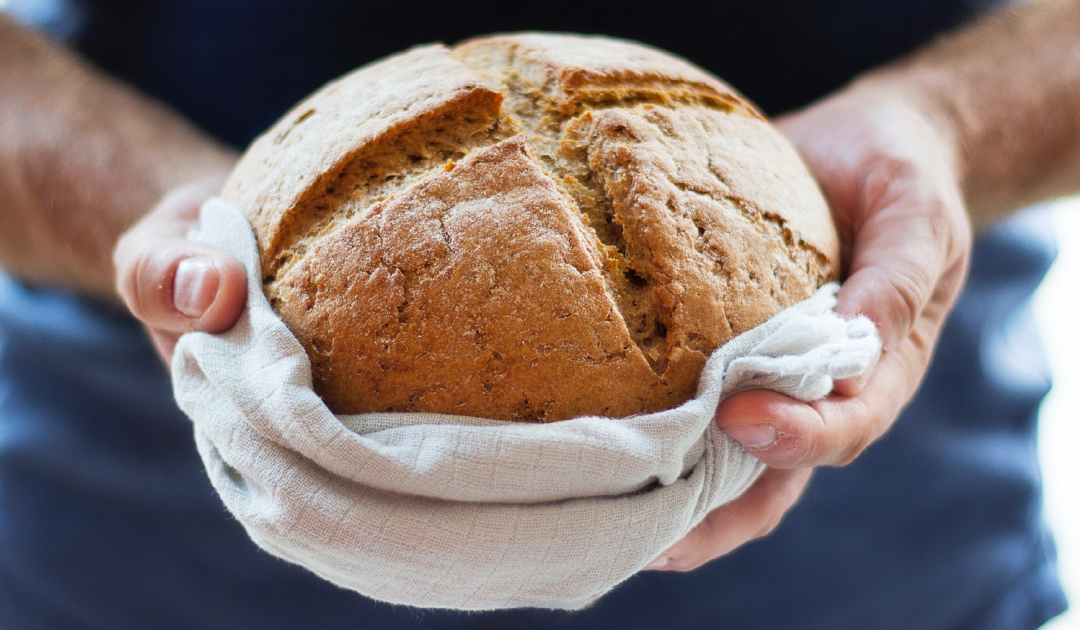Should you go gluten-free?
The Goods on Gluten-Free – Should You Try It?
One of the most talked about nutrition topics of the past couple of years has been whether or not gluten should have a place – or be forbidden – in our diets. Until recently, even the word ‘gluten’ would have been used almost exclusively in culinary, confectionary and severe allergy professions alone. But, due to the recent increase in understanding about gluten, its properties, and health effects, the idea of going gluten-free has gained major popularity and as an understandable result, has left many people wondering whether or not gluten-free is the way to go in their own lives. If you’ve been curious about gluten, even if you’ve already experimented with gluten-free living, it’s important to have a good understanding of the basics around the topic, so you can make informed decisions about the nutrition you and your family access.
What is gluten anyway?
Gluten is the name of a family of proteins found in wheat and wheat related grains such as barley and rye. Gluten itself is what enables foods made of ingredients to hold their shape. They act almost like ‘glue’ to give foods texture and hold it together. It can be found in many foods, even where you might not expect it.
There are three big categories of grains that are known as ‘glutinous grains.’ These include:
1. Wheat (including wheat berries, durum, emmer, semolina, spelt, farina, farro, graham, kamut, and einkorn)
2. Barley
3. Rye
Things like breads and crackers, pastries, pastas, cereals, beer, soups and sauces (which could contain grains or flours as thickeners), brewer’s yeast, and food colouring are some foods and beverages that contain these grains and therefore naturally contain gluten. But, sometimes, gluten itself is also used in other foods to act as a binding agent to give texture and hold to other ingredients.
Are most people allergic to gluten?
You may have heard that most people cannot tolerate gluten, or that grains today are different than the grains our ancestors used to eat. However, many studies have shown that in fact, grains and gluten are well-tolerated by the majority of people. That being said, there are three key groups of people who greatly benefit from removing gluten from their diets.
1. Celiac Disease Sufferers
Celiac disease, suffered by 1% of people, is a condition of the immune system in which eating gluten triggers an intestine-damaging response. Symptoms of celiac disease are serious and uncomfortable and include abdominal pain, skin rashes, headaches, diarrhea, vomiting, and even unexplained weight loss. In cases of celiac disease, it’s imperative for the individual to remove all sources of gluten from their diets as well as from any personal care items they use, since some of the unlikely sources of gluten can include lipsticks and balms, body and handy creams and cosmetics which could introduce trace amounts of gluten that would trigger a reaction. Often, celiac sufferers may not improve by gluten elimination alone and require a healing treatment to their damaged intestinal lining, not to mention supporting their immune system; contact us to develop a plan to help you there…
2. Non-Celiac Gluten Sensitivity
While celiac disease is rare, the percent of people who suffer from non-celiac gluten sensitivity (NCGS) is unknown and triggers similar symptoms. Unfortunately, because validated biomarkers or tests have not yet been developed, accurate diagnosis of this condition is still challenging. That said, it’s still important for this group of people to remove gluten from their diets to ensure they are not taxing their immune systems unnecessarily. One test that can be helpful to identify those in this group, is a ‘zonulin antibody’ blood test which we can arrange at our clinic.
3. Those with Other Gut and Auto-immune Disorders There’s still a third group of people who also benefit from removing gluten – those who suffer from other gut-related illnesses such as IBS (irritable bowel syndrome), Crohn’s disease, ulcerative colitis as well as a hot of auto-immune disorders such as lupus and vitiligo, etc.
What do I need to know to go gluten-free?
Whole grains do contain a number of important nutrients, such as fiber, iron, calcium, magnesium, zinc, folate, niacin, riboflavin, vitamin B12 and protein. So when deciding to remove gluten-containing whole grains from your diet, be sure create a robust diet that can replace these and/or take supplements to add to your security. Know too, that many gluten-free substitutes like cookies, brownies and breads usually contain higher levels of fats, sugar and salt than their conventional counterparts. If you crave the comfort of baked goods or cereals, we recommend creating your own gluten-free versions at home for the healthiest alternative from whole-foods based ingredients (not processed replacement gluten-free flours).
Going gluten-free will take time, patience and practice – we know, because we’ve helped dozens of families do it with success! Sometimes you don’t even realize how much gluten is affecting your system until you eliminate it. Check our Facebook page where we feature monthly gluten free recipes and you’ll find a few tried and true favourites to get you going. If you suffer from symptoms such as constant stomach pain, headaches, bowel issues or other symptoms that could be related to gluten sensitivity, please book an appointment so we can properly test you for celiac disease and non-celiac gluten sensitivity. We want to make sure you’re living your healthiest life possible! If not, but you’d still like to explore the health benefits of removing gluten, we’d love to help you make a plan to get your health back on track by managing your gut health.
To your good health, Dr. Habib ND Naturopathic Doctor
What is Prediabetes. Do You Have It?
Prediabetes is Very Common, Do You Have It? By Rahim Habib BSc, ND How many people do you know who have diabetes? It is estimated that 30 percent of people who have diabetes, do not realize it, it has not yet been diagnosed in them. However, when we think of...
Spring Detox Workshop
It’s Time to Cleanse: Spring Workshop Did you know that 5000 years ago, Ayurveda, the oldest form of organized medicine, recommended to cleanse and detoxify the body each and every season of the year! If we ever needed to detox, it’s right now. Take tap water as an...
Mend Your Mind
Mend Your Mind When we think about ‘the mind,’ we often associate it with our brain, our thoughts, our ability to reason and focus, our perceptions and judgments, and self-conciousness. However, researcher and author, Dr. Candace Pert, who wrote “Molecules of...
Being Good to Yourself
Being Good to Yourself February is a be-good-to-yourself month. It also just happens to be Heart Health Month. I have found that many people do not know what being good to yourself means. Most think it’s treating yourself, to reward yourself, and this is not wrong,...
Building Awareness
New Beginnings in 2010 The beginning of the New Year is usually a time for making and renewing goals, for reflection on what you want to see for your life, packaged into what can be done this year. I would like to suggest five key areas to work on throughout the...
Planning for Health
Planning for Health At this time of year there is a lot of planning for holiday celebrations in the workplace, among families, and friends. Rightly so, since we may not stop and positively interact with our loved ones and dear friends for much of the year. ...
Vitamin D and Cold & Flu Prevention
Vitamin D and Cold & Flu Prevention We all know about the connection between Vitamin D and how it improves calcium absorption, and thus bone health. But, over the past decade of research, new findings are showing that activated forms of vitamin D have incredible...
Natural Help for Psoriasis
Solving Psoriasis Of all of the skin problems people experience, psoriasis can be one of the most frustrating. It often starts with a terrible itchy scalp that keeps you awake nights…you try many skin products, only to find it can come right back with a...
Optimizing Immunity
Helping the Immune System Is More Than About Flu Shots...Plus My Top 12 Tips for Immune Balance Many people ask me about options/alternatives to taking the influenza shot each year. Since the flu shot is recommended mostly for people who are elderly, or have long term...



